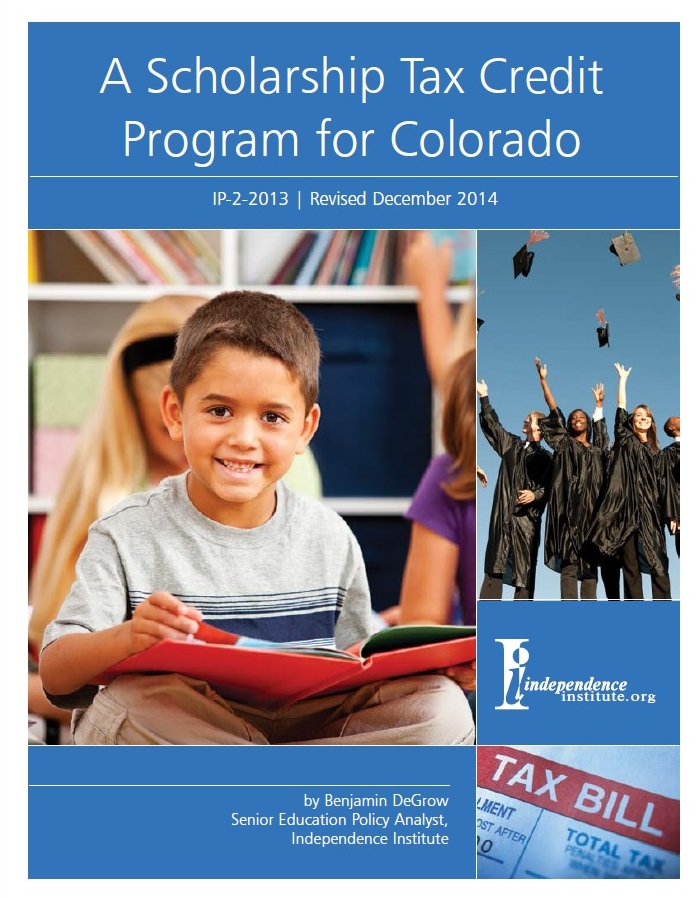IP-2-2013 (Revised December 2014)
Author: Ben DeGrow
PDF of full Issue Paper
Scribd version of full Issue Paper
Executive Summary
Scholarship tax credits increase the opportunity for K-12 students to access non-public educational options. Such tax code modifications increase the incentive for persons and businesses to contribute funds to qualified nonprofit scholarship-granting organizations. In turn, the organizations use most of the incoming funds to assist low- and middle-income families with private school tuition expenses.
Currently, 14 states operate a total of 17 different scholarship tax credit programs. No two programs are alike, with different criteria for student eligibility, scholarship sizes, limits on the size or value of tax credits, and requirements for scholarship organizations. Though research has been limited, strong evidence exists that such programs yield academic and competitive benefits, generate a positive fiscal impact on the state, and improve parental satisfaction. State and federal courts have consistently upheld scholarship tax credit programs.
Colorado is in need of a scholarship tax credit program. Important measures of achievement and attainment, especially among disadvantaged groups, continue to lag behind expectations. Even the highest-performing schools do not serve every student well. Parents should be empowered to choose different educational settings that serve their children’s needs.
By harnessing the power of voluntary contributions, a scholarship tax credit program could open the doors of learning opportunity for thousands of Colorado students with no negative fiscal impact on the state. A model program would provide dollar-for-dollar tax credits to persons and businesses that contribute to qualified nonprofit organizations that provide scholarships for K-12 non-public school tuition, as follows:
- All children from families with incomes at or below 300 percent of federal poverty level should be eligible for a scholarship.
- To promote cost savings, scholarship eligibility during the program’s first three years also should be limited to students previously enrolled in public school, incoming kindergarteners or 1st graders, and students already receiving a privately-funded scholarship.
- The average scholarship amount issued by a participating nonprofit organization should be set at 50 percent of state average Per Pupil Revenue ($7,023 in fiscal year 2014-15).
- The program ideally should operate without a total annual program cap. If a reasonably sized cap is implemented, it should include a mechanism for automatic annual cap increases.
- The program should limit credits for individual contributions to a taxpayer’s total liability.
- Participating non-profit organizations must abide by basic financial accountability standards and must disburse at least 90 percent of their funds as scholarships, though the General Assembly also could consider a relaxed standard for startup organizations
- Using one of a selection of nationally norm-referenced tests, participating private schools would report scholarship students’ academic progress to an independent research organization for a publicly reported annual program evaluation.
Colorado policymakers should give careful consideration to providing many of the state’s families an important benefit through the adoption of scholarship tax credits.









